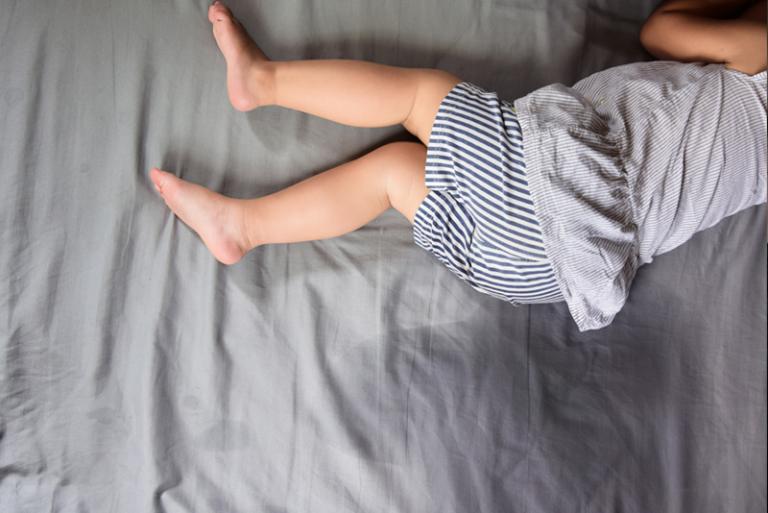Children with Nocturnal Enuresis
Bed-wetting in Children
The following are some common questions asked on bed-wetting.
What is Bed-wetting?
It is uncontrollable wetting while asleep in an otherwise healthy child beyond early childhood. Most bed-wetters seeking treatment in Singapore are:
- 5 years or older with majority between 7 to 12 years old
- Suffering from frequent bed-wetting of at least twice per week, the majority being almost every night

Does Bed-wetting in Children Require Treatment?
In Singapore, it has been found that bed-wetters and their parents sought treatment for the following reasons:
- Restricted activities involving overnight sleep outside home
- Suffering from frequent bed-wetting of at least twice per week, the majority being almost every night
How Common is Bed-wetting in Children?
What Causes Bed-wetting?
The exact cause or causes of bed-wetting are unknown. Various factors or causes that have been suggested include:
- Hereditary cause i.e. Bed-wetting often runs in the family
- Inability to wake up to void urine. Bed-wetters are known to be deep sleepers.
- A delay in maturation of bladder control at night.
- Bed-wetting tends to improve with time and the majority of sufferers will ultimately grow out of it. However, this may take years and a small percentage of them (1%) will continue bed-wetting beyond puberty.
- Lack of the production of a naturally-occurring body hormone called Anti-
Diuretic Hormone (ADH) during sleep in 20-30% of children with bed-wetting.
This hormone is important for reducing urine production at night.
Is Bed-wetting Due to Psychological Problems?
How is Bed-wetting Treated?
For treatment of bed-wetting, consult a paediatrician who will obtain a proper history and perform a physical examination of your child to make sure that there are no medical illnesses in your child. Investigations such as urine/blood tests or ultrasound scan of the bladder/kidneys may be necessary in some cases. In the absence of medical illnesses, your child’s paediatrician may suggest certain measures e.g. no oral fluids 2 hours prior to bedtime, going to toilet before bedtime, avoidance of caffeinated drinks (which may increase urine output and also affect sleep), bed-wetting alarm, star chart for reward/encouragement on dry days etc. Medications are rarely required unless severe. For worried parents, you might be reassured that bed-wetting often improves with age.

